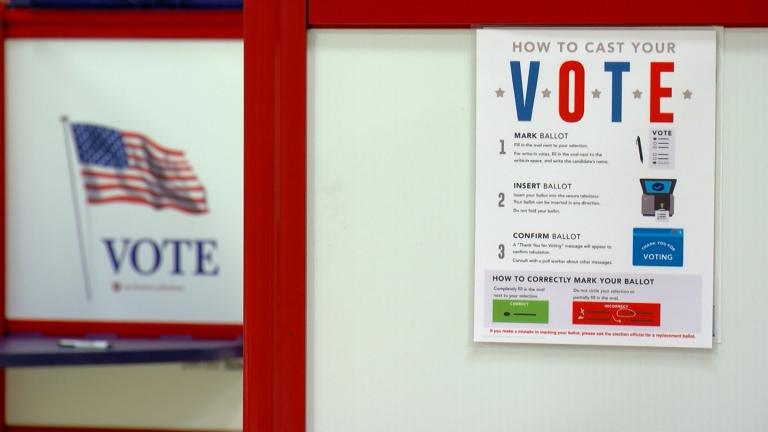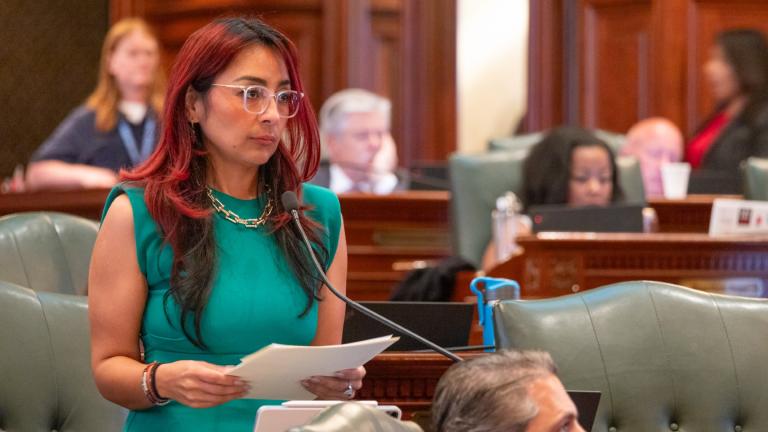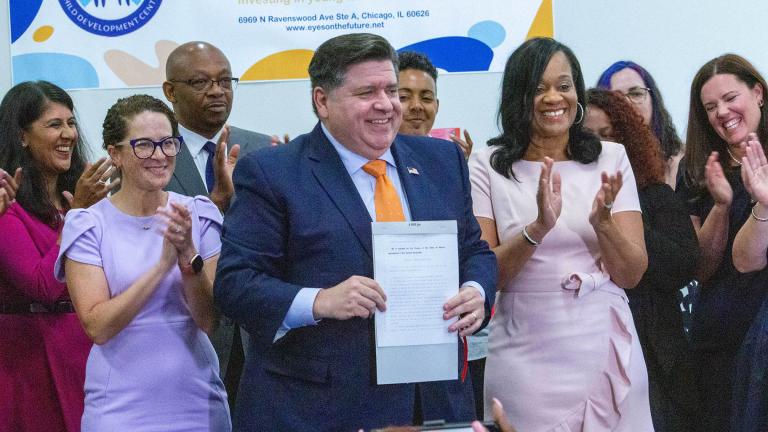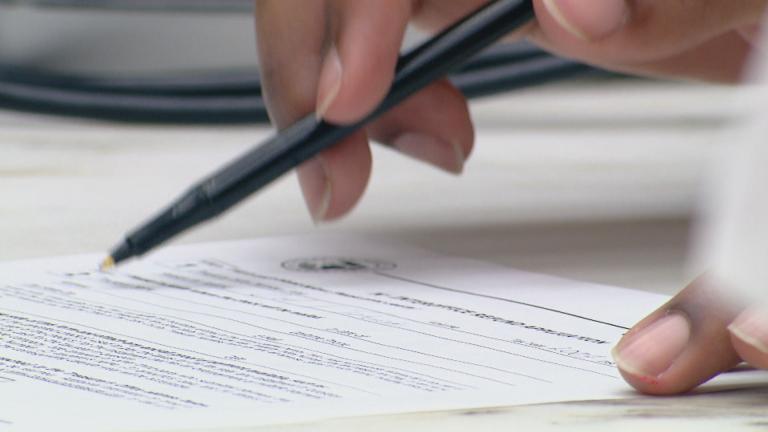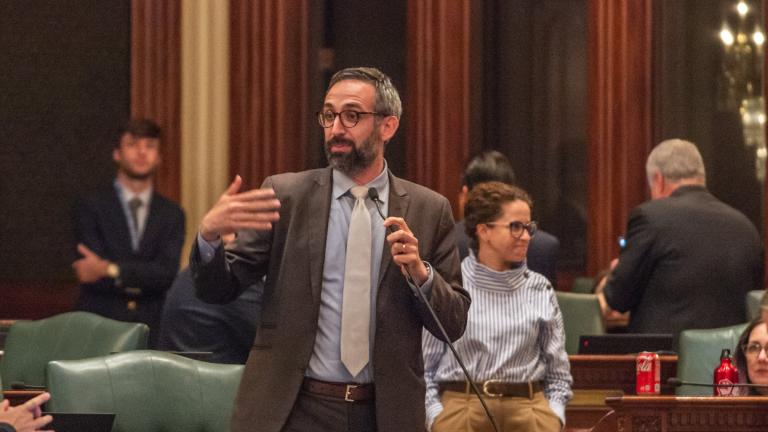Illinois Gov. J.B. Pritzker will outline his vision for the state Wednesday, in a combined state of the state and budget address. For the first time since the start of the COVID-19 pandemic, he’ll present from the Illinois House chambers to a joint session of state representatives and senators.
Although Illinois doesn’t have the best fiscal reputation — with $140 billion owed to government pension systems, the state carries the baleful title of the most underfunded pensions in the nation — Comptroller Susana Mendoza said things are actually going pretty well. She said the state has received six credit upgrades that prove it and that Illinois is up to date paying its bills.
“Our oldest bill today and tomorrow will be 15 days old, so we’re right on track, well under a 30-day payment cycle,” Mendoza said. “As of right now, we have $1.06 billion in our rainy-day fund, up from $60,000 dollars when I first took office.”
But Mendoza warned that while $1 billion sounds like a lot, it’s a reserve that would only cover the state’s current spending for five days.
Nonpartisan estimates from the state’s Commission on Government Forecasting and Accountability (COGFA) call for Illinois to have additional revenue for the next fiscal year.
Mendoza said Pritzker should put at least $1 billion toward the state’s emergency reserves and toward pensions.
“When we’re done with those fiscally disciplined approaches, whatever money is there we really need to be cautious about how we spend it,” Mendoza said. “I would suggest that the best thing to do is not to create new programs that are going to require year-to-year additional spending.”
Any remaining revenue should be used to bulk up existing programs proven to save money in the long run through improving residents’ lives, Mendoza said — for example, the Monetary Award Program (MAP) that provides tuition grants to low-income college students.
Mendoza credited the governor and legislature with using fiscal discipline thus far, including putting money toward the rainy-day fund in a recent supplemental appropriation for the 2023 fiscal year.
But it may be unrealistic to fathom Pritzker failing to introduce new signature programs. Every politician wants to make his or her mark, and Pritzker is no exception, particularly as he has gained more attention on a national level, is embarking on the start of a second term and has wider-than-ever supermajorities of Democrats in the General Assembly.
During his inauguration speech in January, Pritzker talked about plans to offer free tuition for all low- and middle-income college students and to expand early childhood education.
Republicans are on board with focusing on early childhood education in concept. House Minority Leader Tony McCombie said in a lot of places, particularly rural areas, parents can’t work because there aren’t preschools or daycares to care for their children.
McCombie said in cases, that’s due to overly burdensome state regulations that make running a daycare too expensive.
A lack of workers is also a problem.
McCombie said writing a check alone won’t solve the issue, but money is an issue, too.
“We all know that nothing’s free,” said McCombie, who is in her first months as a legislative leader. “The intent seems good, but ‘How do we get there?’ is always the question.”
There are sure to be plenty of other demands and wishes for the state’s money — from pumping more dollars into education, to making up for decreases with the expiration of pandemic-era federal grants, to propping up hospitals and human services.
Given their dominance in the legislature, Democrats’ wish lists will take prominence.
But Republicans, who often call for spending reductions, have demands, too.
Foremost for a group of downstate legislators is helping downstate residents with what they call an electric bill crisis, where some Ameren customers are paying rates that have doubled.
“Last week in Kinkaid, Illinois, an entire grocery store went out of business because they couldn’t pay the power bill for their coolers,” state Sen. Chapin Rose (R-Mahomet) said. “That community is without a grocery store.”
Republicans blame the Illinois law known as CEJA, which stands for the Climate and Equitable Jobs Act, which aims to move Illinois to all renewable energy. Rose and state Sen. Jil Tracy (R-Quicny) said they support going green, but the law’s doing too much, too soon.
“We all agree prioritizing sustainable energy, renewable energy has great merit, has great value,” Tracy said. “But what we did when we passed Senate Bill 9 was go into all or nothing mode. We made that policy that we have got to reach sustainable and renewable energy production goals that really are kind of unrealistic.”
Environmentalists and backers of the renewable energy law dispute that it’s the cause of rising costs.
The GOP said it wants the governor to promise $200 million in immediate relief via rebates for Ameren customers. A line was included for rebates in the FY23 supplemental appropriation, but no actual money was put toward it — meaning the legislature signaled an aspiration to fund electric rate relief but did not actually give any money to do it.
“That’s what we’re looking for in the speech tomorrow,” Rose said. “What is he going to do to help our constituents with their power bills?”
Follow Amanda Vinicky on Twitter: @AmandaVinicky

